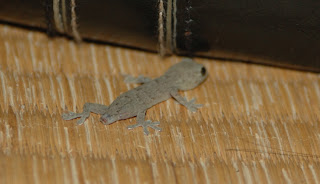Customs and traditions are what set societies apart. While not all traditions are native to a certain culture, they help sculpt who we are and give us a sense of place.
I was discussing Japanese birthday traditions with one of my students, Dr. Suyama, last night. According to recent Japanese statistics, he has a very large family, with 3 children.
As an expert in cancer chemotherapy, he is a very busy man and doesn't spend a lot of time at home, as is the custom with most Japanese men. He seems like a very gentle and loving father, though he doesn't always remember his children's names or ages.
This weekend is his youngest daughter's birthday - she'll be one year old. “What are some Japanese customs for first birthday celebrations?”, I asked him. This is what I learned:
There are 3 gifts the infant must choose from: a calligraphy brush, money or a calculator. Whichever gift the child choses will determine his or her future. The calligraphy brush brings scholarly knowledge, the money brings great wealth, and Dr. Suyama didn't know what the calculator meant. “Good math skills?”, I joked.
I asked the doctor which one he chose when he was young. He didn't know.
The next “test”, as Suyama put it, included kagama mochi. This is a stack of mochi (or rice cakes) that acts as a decoration around the New Year.
Dr. Suyama didn't quite know how to describe what the child does with the giant rice cakes, but his digital dictionary brought up the word “hump”. I really hoped it was just a language barrier and there was a better word to describe this rite of passage.
After a second of online research I learned that the toddler isn't expected to hump the mochi, but instead carry it piggyback and take some of his or her first steps.
My student has no clue why the Japanese do this, but it's tradition, so everyone does it.
I told him that American first birthdays involve a lot of family, friends, presents and cake-covered toddlers. He was surprised that friends come to the celebration. I was surprised that a baby is supposed to hump a rice cake.















